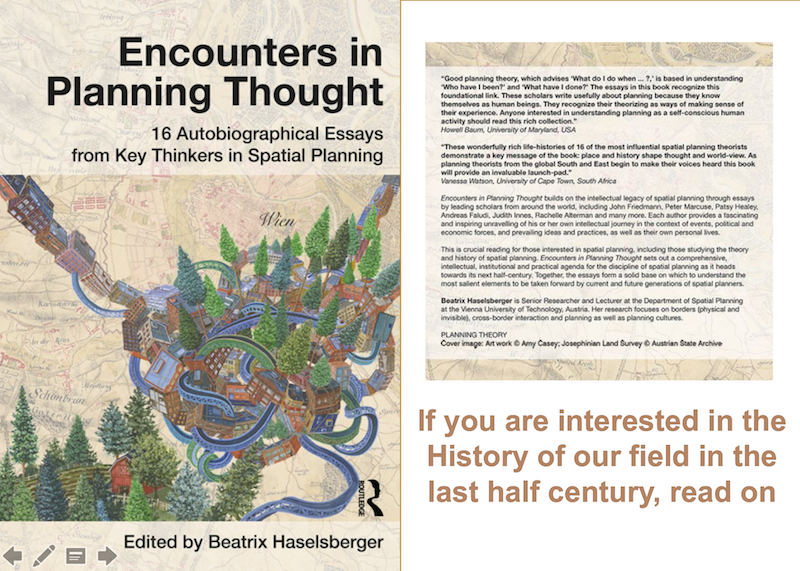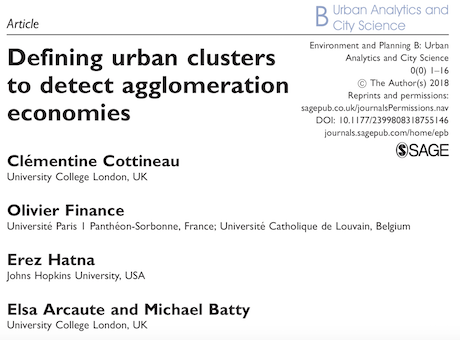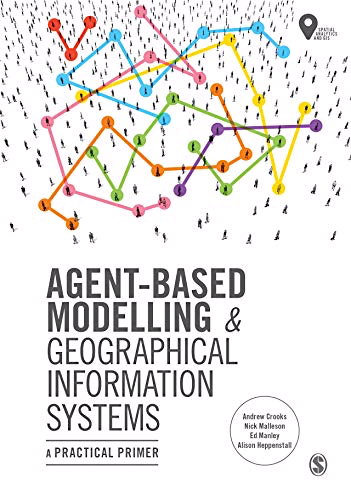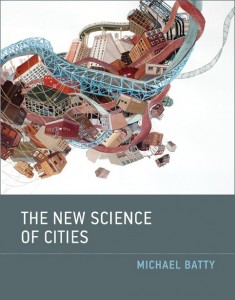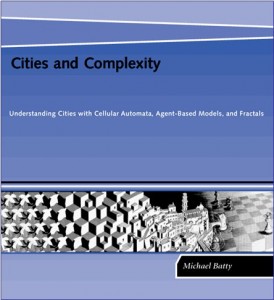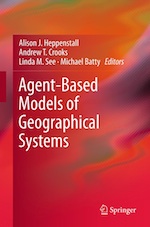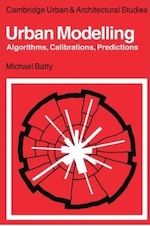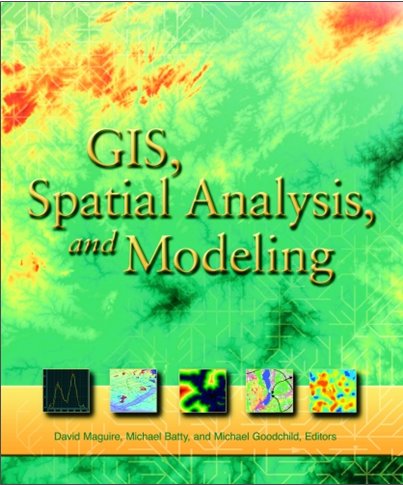The IPHS (International Planning History Society) has conferred one of its 2018 book prizes on Trixi Haselberger’s edited collection of the thoughts and reflections of some 16 of us who gathered in Vienna in 2014. I myself am not keen on being identified by age but it is easy to do so – someone came to the front door yesterday to conduct a poll and on seeing me, then asked if anyone under 65 was in the flat ! Anyway if you want to read what we all said about the world as it developed through planning theory during the last 50 years, please get hold of Trixi’s book. I blogged about it previously – click on this spot – but here is the citation for the prize”
“The prize, for the best planning history edited work goes to Beatrix HASELSBERGER (editor), Encounters in Planning Thought. 16 Autobiographical Essays from Key Thinkers in Spatial Planning, (New York and London: Routledge 2017).“The book unpacks”, as the editor writes, “the secrets of how and why sixteen distinguished spatial planners with an average age of 75 built their ideas over the last five to six decades”. Considering that this was an extraordinary generation of thinkers, the book offers a major contribution to planning history and theory. Utterly fascinating, it makes for a compelling read, while it provides significant insights into each of these planners’ ideas, lives, and work. It will be a classic. It is already being used to teach graduate planning theory classes. The credit for this outcome goes in part also to the editor, who probably did an excellent subterranean work in ensuring the cohesion and the readability of the whole.”

